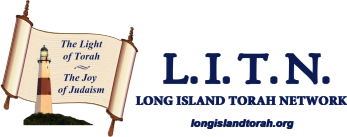Pinchas
Pinchas is commended by G-d for his heroic slaying of the wicked Zimri; Pinchas has assuaged Divine wrath and atoned for his People. G-d declares Pinchas and all his future descendants Kohanim (priests). (Aaron and Elazar, Pinchas’ father and grandfather, are already Kohanim; but Pinchas, already born when they were chosen and consecrated, was not automatically a Kohen himself.)
G-d commands Moses to count the Jewish People, to determine how many are left after the ravages of the plague. Each of the twelve tribes is counted to ascertain the number of its population. The Sons of Levi are counted separately, and from a younger age, since they play a unique role; they do not receive a portion of the Holy Land, but instead dedicate themselves to Divine service.
The Jews are commanded to wage war on Midian, avenging their malicious attempt to seduce the Jews and destroy them. (Their co-conspirators, the Moabites, are not attacked. The Moabites were motivated by fear, while the Midianites, who were not in path of the advancing Israelites, acted out of pure spite).
G-d instructs Moses regarding the division of the Holy Land. The Land is to be divided by lottery, which will miraculously ensure that each tribe receives the portion best suited to its needs.
The five daughters of Tzelofchad, learned and righteous women, request a portion of the Holy Land, since their father has passed away with no male heirs. Moses conveys their request to G-d, who concurs.
G-d informs Moses that his death is imminent, since he is forbidden to enter the Land. Moses requests that G-d appoint a worthy successor, “so the congregation of G-d will not be like sheep without a shepherd.” G-d instructs Moses to appoint Joshua, his prime disciple, publicly conferring upon him the authority of leadership.
The Parsha concludes by delineating the regular sacrificial requirements for the Temple: the daily Tamid offering, the weekly Sabbath offerings, and the special sacrificial requirements for Holidays.
Click below to open a printable pdf
G-d commands Moses to count the Jewish People, to determine how many are left after the ravages of the plague. Each of the twelve tribes is counted to ascertain the number of its population. The Sons of Levi are counted separately, and from a younger age, since they play a unique role; they do not receive a portion of the Holy Land, but instead dedicate themselves to Divine service.
The Jews are commanded to wage war on Midian, avenging their malicious attempt to seduce the Jews and destroy them. (Their co-conspirators, the Moabites, are not attacked. The Moabites were motivated by fear, while the Midianites, who were not in path of the advancing Israelites, acted out of pure spite).
G-d instructs Moses regarding the division of the Holy Land. The Land is to be divided by lottery, which will miraculously ensure that each tribe receives the portion best suited to its needs.
The five daughters of Tzelofchad, learned and righteous women, request a portion of the Holy Land, since their father has passed away with no male heirs. Moses conveys their request to G-d, who concurs.
G-d informs Moses that his death is imminent, since he is forbidden to enter the Land. Moses requests that G-d appoint a worthy successor, “so the congregation of G-d will not be like sheep without a shepherd.” G-d instructs Moses to appoint Joshua, his prime disciple, publicly conferring upon him the authority of leadership.
The Parsha concludes by delineating the regular sacrificial requirements for the Temple: the daily Tamid offering, the weekly Sabbath offerings, and the special sacrificial requirements for Holidays.
Click below to open a printable pdf
| parsha_snapshot_pinchas_m.pdf | |
| File Size: | 344 kb |
| File Type: | |

